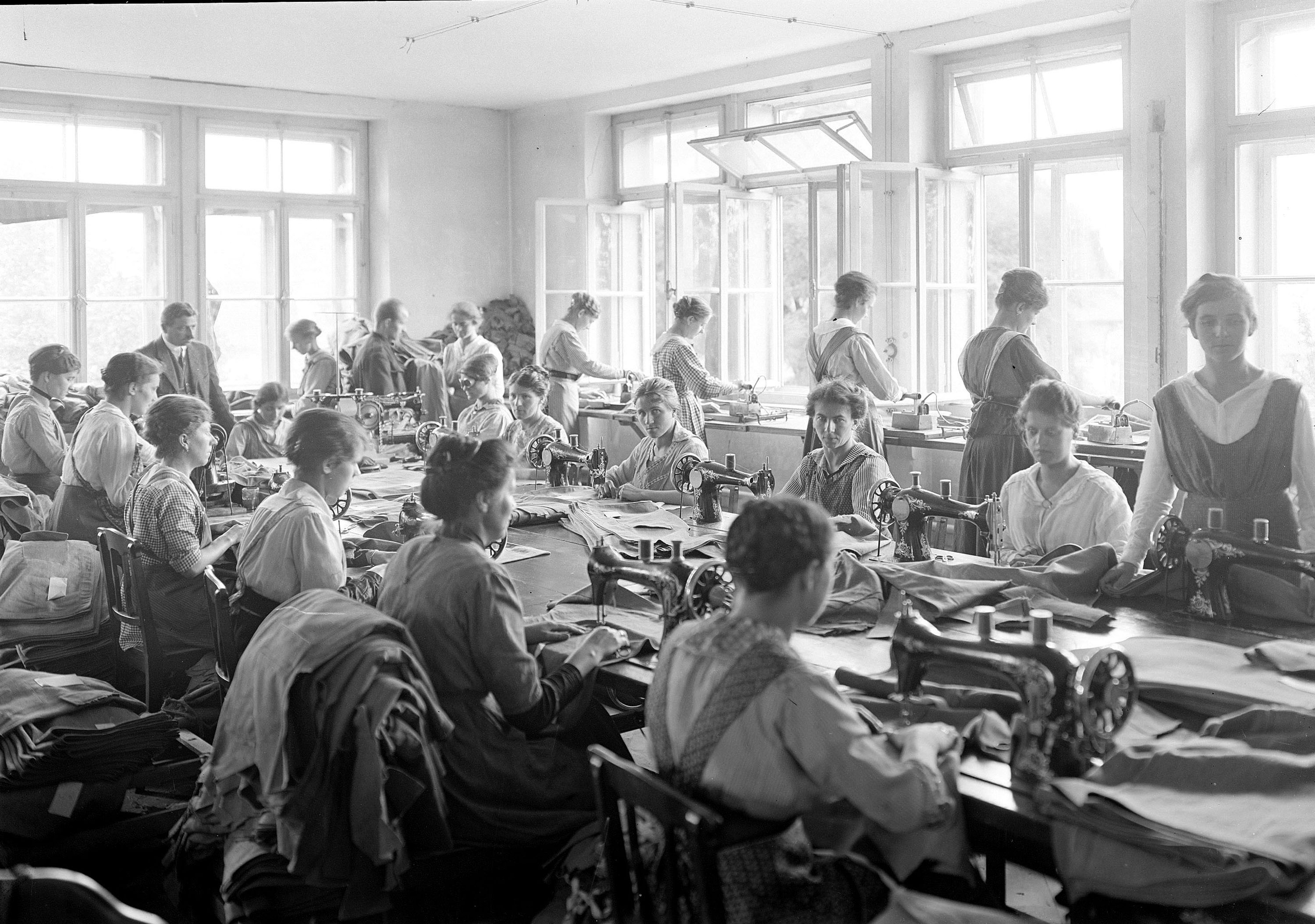How many hours do you work a week?

More than 41 hours and 10 minutes? That’s the average in Switzerland for people with full-time jobs – relatively few compared with most developed countries. How did Switzerland get to this seemingly happy situation, and why are unions and business associations getting all worked up?
After the General Strike of 1918External link (in which over 250,000 workers downed tools, resulting in the troops being sent in), a 48-hour week for workers on contracts was introduced in Switzerland in 1920.

The current labour lawExternal link – with weekly maximums of 45 or 50 hours, depending on the sector – dates back to 1966.
A popular initiative to lower this to 40 hours was launched in 1971. The Federal Council came out against it – Economics Minister Ernst Brugger described it as “formally and legally impossible and unimplementable to boot”. In 1976, almost four out of five voters agreed with him.
At present, a 41-hour week is the norm across Switzerland (excluding the self-employed), according to the Federal Statistical OfficeExternal link.
Legally, as the State Secretariat for Economic Affairs (SECO) points outExternal link, the maximum number of working hours per week is 45 for employees working in “industry, office staff, technical and other employees, sales personnel in large retailing firms” and 50 hours for everyone else. These limits are rigidly adhered to.
Flexible arrangements exist, however. “In companies subject to weather-related loss of working time or sharp seasonal swings in their business, the maximum weekly working hours (45 or 50) may be increased by four hours at most, provided that the average weekly working hours over a period of six months do not exceed the maximum,” SECO says.

More
Swiss lack time to enjoy their wealth
In addition, for employees working a five-day week on average over the calendar year, the maximum weekly working hours (45) may be extended by two hours, as long as the average number of working hours over a period of eight weeks does not exceed the maximum, or four hours, as long as the average number of working hours over a period of four weeks does not exceed the maximum.
Less red tape
Despite this flexibility, companies want more. On November 7, the Swiss Association for Small and Medium-sized BusinessesExternal link (SMEs) argued that the current labour law needed to be modernised and made even more flexible.
The association wanted to see the removal of red tape regarding work times and break times and also called for SMEs to be freed from requirements aimed at large companies.
The association said Switzerland’s flexible labour market was the basis for the country’s low unemployment rate of 3%. “If we don’t want to jeopardise this reason for our success – and if we want to guarantee jobs in the long term, the employment law must be freed of unnecessary and out-of-date regulations,” said the association’s president Jean-François Rime.
“The current law reeks of the 1950s and 1960s and is simply not in keeping with the times.”
Today, three-quarters of employees are in the services sector and use the freedom and possibilities of digitalisation, the association said, adding that “too rigid working hours are based on a factory model that has been overtaken”.
The association is demanding that the maximum working times are raised from 45 hours a week to 50 hours a week.
The Swiss Fiduciary AssociationExternal link, for example, said the current employment law was “barely workable”, pointing out that fiduciaries are inundated with work at the end and beginning of the year dealing with annual accounts and tax returns, but then summer is significantly quieter.

More
Over 40% of Swiss ‘very stressed’ at work
“Here we need more flexibility for the sake of employers and employees,” said the association’s president Daniela Schneeberger.
‘Brazen’
Trade union umbrella group Travail SuisseExternal link strongly disagreed, arguing that “under the cloak of flexibility, the employment law is to be hollowed out. This is poison for workers”. Increasing the weekly working time to 50 hours would “benefit employers at the expense of employees”, it said.
“Switzerland already has one of the most liberal employment laws in Europe, with working times that are above average for length and flexibility. The demand to increase the working time by more than 11% is just brazen,” said Adrian Wüthrich, president of Travail Suisse.
Pressure on workers was already high, he explained, with stress, workloads and burn-outs having increased dramatically in recent years. The costs of stress-related illnesses had also increased.
“The consequences of longer shifts and less recovery time are clear: more stress, more health risks and as a result higher economic costs,” Wüthrich said.
UniaExternal link, Switzerland’s largest trade union, was committed to shorter working times for two reasons, spokesman Pepo Hofstetter told swissinfo.ch.
“First, so that workers can benefit from technical progress – digitalisation – and not simply be rationalised away. Second, to improve the compatibility of work and family duties,” he said, adding that Unia would welcome a 35-hour week.
Working hours
In 2012, a studyExternal link sponsored by the Swiss National Science Foundation found that while the average number of hours worked per year was 2,400 in 1950, this had dropped to 1,600 by 2010.
The authors gave three main reasons for this. First, the working week had decreased from an average of nearly 50 hours to 42. Second, employees were getting about five weeks of paid holiday a year, compared with two in 1950. Third, the large increase in employees who were working part time (having half a day or more off each week): in the 1950s only about 5% were part time, in 2010 it was more than 31%.
By 2015, the average annual hours worked per worker in Switzerland – 1,590 – had barely changed, according to OECD dataExternal link which ranked Switzerland 28th out of 35 developed countries (for hours worked). Mexico was at one extreme (2,248 hours) and Germany at the other (1,368). The United States was pretty much in the middle, on 1,786.
What question should we investigate next?

In compliance with the JTI standards
More: SWI swissinfo.ch certified by the Journalism Trust Initiative













You can find an overview of ongoing debates with our journalists here . Please join us!
If you want to start a conversation about a topic raised in this article or want to report factual errors, email us at english@swissinfo.ch.